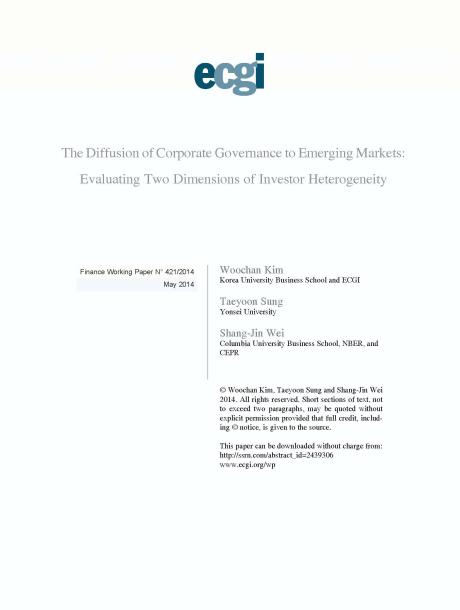
The Diffusion of Corporate Governance to Emerging Markets: Evaluating Two Dimensions of Investor Heterogeneity
Abstract
This paper investigates whether foreign institutional investors in emerging markets can
enhance shareholder value. We pay special attention to two dimensions of investor
heterogeneity: whether an investor declares itself as an activist, and whether an investor comes from a country with a strong tradition of investor activism. First, we apply an event study approach to the announcements of block purchases by foreign institutional investors in Korea. We find that stock prices rise on average, but only when foreign institutional investors declare themselves as activists. Source country identities also matter: The positive stock price reactions are more pronounced when the activist investors come from source countries with a strong tradition of investor activism. Second, we examine corporate financial policies and governance practices of target firms one to three years following block purchases by foreign activist investors. We find that target firms are more likely to reduce cash holdings, raise leverage ratios, and peg dividend payouts and stock repurchases more closely to changes in earnings, but only if foreign activists are from countries with a strong tradition of activism. We conclude that openness to foreign activist investors, especially those from countries with a strong tradition of activism, can indeed put pressures on firms in emerging markets to adopt corporate governance practices that
enhance shareholder values.




